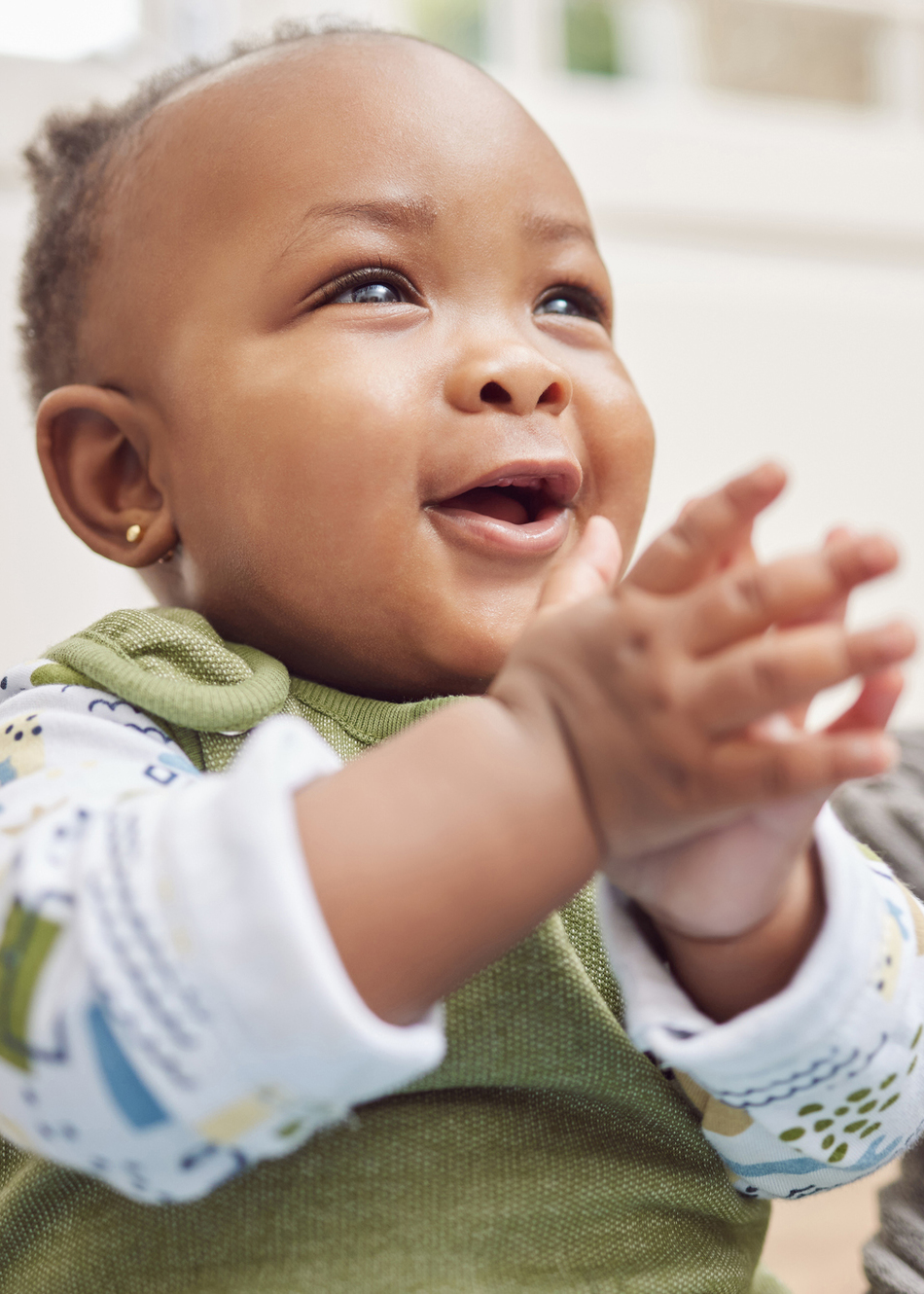Episode Transcript
Newborns do a lot of strange movements and behaviors that quite often scare parents. What are normal newborn reflexes, and when should parents worry?
The first one most parents know and call the startle reflex. It's technically called the Moro reflex. Parents often tell me it's when their baby gets scared, but that's not really the reason. Babies don't get scared as newborns. It's due to their nervous system response to a sudden change in sensory stimulation.
And it's a good thing, actually. In fact, it's able to be seen on ultrasounds when a mom is only 16 weeks pregnant, and a baby's own cry can even stimulate it. It lasts until babies are about 2 to 3 months old.
So when should you worry? Well, if you had a difficult labor and there was concern that your baby might have had some oxygen deprivation, then an exaggerated Moro reflex could be concerned for something called hypoxic-ischemic encephalopathy. Basically, the brain is hurt by having the oxygen supply cut down.
Neurologists can help evaluate and treat this, and the good news is it's picked up really closely after birth. And if there's any concern, your baby will be in the intensive care unit really quickly for a full evaluation. If your baby is otherwise in the normal newborn nursery and goes home, there's a good chance this is not what your baby has.
Another normal reflex is the suck or rooting reflex. And that's just what it sounds like. It's basically what helps the baby learn to find a food source and eat. This reflex doesn't start until about 32 weeks of pregnancy, which is why preemies have such a hard time learning how to eat. This reflex is fully developed at about 36 weeks.
Now, when parents see this, they automatically think their baby is hungry and often that's true. It could be that it's just the reflex and they suck on their fingers and hands as a self-soothing behavior. I see a lot of parents trying to force their babies to eat and then the babies get over-full and throw up.
Then there's the tonic neck reflex. We call it the fencing reflex because they have one arm outstretched and one bent and they're about to say, "En garde!" Some parents worry that there is a problem because both arms aren't in the same position or both arms aren't being used the same way at the same time. But this is normal, and it can last until they're about 7 months old.
Finally, this isn't a reflex, but it's something parents ask me about all the time at the newborn checkups. It's called periodic breathing. Babies do this weird thing where they look like they're breathing really fast, then they can hold their breath for up to 10 seconds, and then they take a big breath in and then they're back to normal breathing. And it can happen when they're sleeping or when they're awake. And it usually lasts until they're about 6 months old.
Babies' lungs are still developing and their brains are still trying to figure out how to send messages to the lungs to remind them to breathe. Basically, they are still trying to figure out this whole breathing thing and breathing patterns. And it looks scary, but it's normal.
So when should you worry about your baby's breathing? If they're consistently breathing more than 60 times a minute, if they're having retractions where it looks like their stomach muscles are sucking in under their ribs, if they are making grunting noises with each breath, or if they hold their breath for more than 20 seconds and turn blue, those are not periodic breathing, and that needs to be evaluated right away to see if your newborn's oxygen is low. Depending on how severe the symptoms are, the best place for your newborn to be evaluated for breathing issues may be the emergency room.
One last thing. What about those eyes? Well, babies have very little control over their eye movements right away. That's why they always look at you cross-eyed. They're trying to figure out how to control their eye movements and learn to focus on things.
Also, it's not uncommon for a baby to roll their eyes when they're sleeping or when they're almost asleep, like when they're going to sleep or trying to wake up. But this should not be the norm. If they are not rolling their eyes but doing more of a rhythmic back and forth, something called nystagmus, that is absolutely not normal.
If your baby rolls their eyes often, that is not normal. If your baby's eyes roll and your little one also has stiffness in their arms or legs or has shaking that doesn't look like the startle reflex, that could be a seizure and that's an immediate trip to your local children's emergency room.
Many things can cause seizures in a new baby, including low blood sugar, low calcium levels, metabolic diseases, or brain abnormalities, in addition to epilepsy and high fevers. Your child will probably be admitted to the hospital and see a neurologist for tests to determine why they are having these weird movements and possible seizures.
So while a lot of these normal behaviors look concerning, they are often just part of your baby adjusting to being in the outside world. If your baby has any of the not-so-normal behaviors I talked about, please have them see their pediatrician right away or go to your closest pediatric emergency room.
